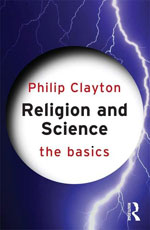"Consider these examples of distinctive contributions from the various traditions. Buddhists emphasize the interdependence of all things, as well as the importance of 'mindfulness' — presence in, with, and to the moment just as it is and for its own sake. Hindu thought has a beautiful ability to recognize the innate value in all individual living things at the same time that it emphasizes their grounding in a single ultimate source and reality. It encourages religious practices that are satisfying and effective in their own right, at the same time that they point beyond themselves to a fundamental spiritual orientation to the world.
"Taoism is a beautiful religion of harmony, balance, and cooperation. For Taoist philosophers, whenever one part of society loses sight of its dependence on other parts and begins to dominate, the balance of the Tao is lost, and one should again seek the middle way. Taoism also offers a deep understanding of right action with the concept of wu wei or 'without action.' Great results can be achieved without effort (wei wu wei: 'action without action' or 'effortless doing') if one retains the balance of the Tao.
"Jewish observance draws attention to the importance of consistent practice in the midst of, or perhaps because of, the complexity and ambiguity of human intentions and attitudes. It also places a strong emphasis on the importance of justice and the contribution that people must make to bringing about justice in the world — not despite their religious convictions but because of them. Jewish thinkers have also emphasized the vast difference between God and human beings, hence the unknowability of God, and hence the importance of humility about whatever are one's own beliefs and convictions.
"Christianity lays great stress on the internal religious life. This religion always asks not only, 'What did you do?' but at the same time, 'What was your inner attitude when you did it?' It is also a religion that places great stress on love. Its founder, Jesus, said that the two greatest commandments were, 'Love the Lord your God with all your heart, soul, strength, and mind' and 'Love your neighbor as yourself.'
"Islam has emphasized the sovereignty of God and the absolute responsibility of humans before their Maker. The five pillars of Islam set high standards for human devotion to God, reminding the believer constantly that all things come from God and will return to God, so that God really is the final judge and determiner of all that exists and occurs. Yet alongside Islam's high standards for obedience are profound mystical writings of devotion to and even unity with the One and Ultimate.
"Nor are the contributions limited to the normal list of the 'world religions.' The indigenous religions are the fundamental ecosystems on which later cultures and complex civilizations have been built. Invariably they teach the close bonds between human beings and their specific environment, as well as the interdependence of humans and other animals. No one should romanticize existence in tribal cultures; their relations to animals were often brutal, since life was a matter of 'eat or be eaten.' Yet the interdependence of humans and other animals was understood in a deeply spiritual way. For example, the hunter might shoot and kill a specific animal, but he would often give thanks to the animal in awareness of his dependence on it. Many groups, such as the First Americans who inhabited the wide prairies of North America, developed sophisticated theologies of the sky god, with remarkable similarities to the Abrahamic traditions. Deep commonalities run through the African tribal religions, most particularly in the notion of ubuntu, or the interconnectedness of all life. The Liberian peace activist Leymah Gbowee translates ubuntu as 'I am what I am because of who we all are.'
"Many today argue that humanism should also be understood as one of the human religions. (Other humanists recoil from the idea of treating humanism as a religion.) It is not a theistic religion, but it places great emphasis on improving human living conditions and educational opportunities and fighting for justice for all.
"Finally, one can also appreciate specific beliefs and practices within specific traditions even while greeting other aspects of the tradition with more skepticism. Thus some evangelicals condone the emphasis on the family in Mormon belief and practice, as well as some Mormon political beliefs, even while disagreeing strongly with their theologies. And many of the traditions admire the Jain concern for preserving all life forms and avoiding inflicting suffering in any way."
